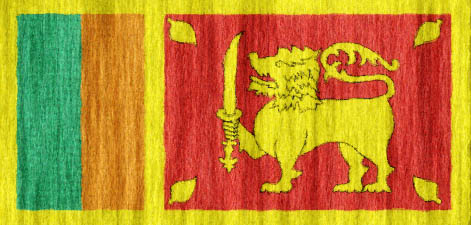Reuters/DPA/Colombo
Sri Lanka has adopted a witness protection law ahead of an investigation into suspected human rights abuses in a 26-year civil war which foreign governments have said is necessary for a reconciliation with ethnic minority Tamils.
The United Nations Human Rights Council has separately investigated war crimes in the final stages of the war against Tamil separatists but this week it deferred its report, saying Colombo had shown a new willingness to open up to scrutiny.
Under the law passed by the Sri Lankan parliament late on Thursday, the government will set up safe houses for witnesses giving testimony to the inquiry commission.
“This will allow people to give evidence and participate in the domestic probe,” Deputy Foreign Affairs Minister Ajith Perera said.
The United Nations estimated in a 2011 report that about 40,000 Tamil civilians were killed in the final weeks of the war that ended in 2009, mostly by the army. The government of the majority Sinhalese country rejected that assertion.
But the new administration that took power last month after an election said it was ready for a new investigation that would bring in foreign experts if
necessary.
“The new law will add credibility to the domestic probe,” a foreign ministry official said.
Another senior cabinet minister said the country has proposed to investigate alleged war crimes committed during the civil war using a commission model from post-apartheid South Africa.
“Our cabinet of ministers have discussed and decided to have an investigation similar to the truth commission in South Africa,” Rajitha Senaratne said, referencing South Africa’s Truth and Reconciliation Commission (TRC), a court-like restorative justice body assembled after the abolition of
apartheid.
“We do not need foreign investigators,” he added at a press conference.
Senaratne said the government welcomed the UN’s decision on Monday to delay the release of a report on alleged war crimes in Sri Lanka by six months. The report was due to be presented in March at the UN Human Rights Council spring session.
Former president Mahinda Rajapakse refused visas for UN investigators to enter the country to gather evidence on alleged war crimes committed during the final phases of the conflict.
During the run-up to his January 8 election victory, President Maithripala Sirisena said he supported an international investigation.
The Tamil National Alliance, a key minority Tamil party that supported Sirisena, has said they are not in favour of a local probe as they had no trust in such mechanism.

